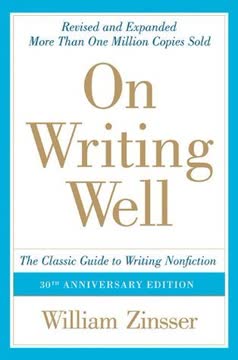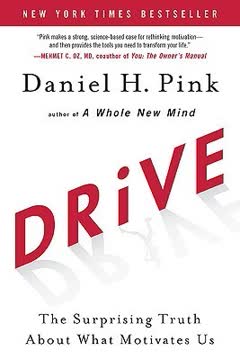Key Takeaways
1. Vocabulary Building: A Lifelong Journey
Throughout the Verbal Advantage program I will be your personal guide on a tour of the English language, a tour that I guarantee will help you improve your word power dramatically and permanently.
Commitment and Consistency. Building a powerful vocabulary is not a quick fix but a continuous process of self-education. It requires dedication, routine, repetition, and review. Think of it as an intellectual conditioning program for your mind, where consistent effort yields lasting results.
Vocabulary and Success. Numerous studies have shown a correlation between career and financial success and an above-average vocabulary. A strong command of language enhances communication skills, improves clarity, and boosts confidence, opening doors to new opportunities and achievements. As William Raspberry put it, "Good English, well spoken and well written, will open more doors than a college degree... Bad English will slam doors you don’t even know exist."
Verbal Advantage as a Tool. This program is designed to boost your vocabulary and enhance your verbal skills, but it's just the beginning. Think of it as a foundation for a lifelong process of self-improvement. The responsibility for keeping your verbal tools sharp ultimately lies with you.
2. The Power of Reading: A Primary Method for Vocabulary Growth
If you wish to continue to build your vocabulary after completing this program—in fact, if you want to retain the words you know right now—you must start reading more, reading widely, and reading something—even if it’s just a few pages at first—every single day.
Reading Widely. To build a powerful vocabulary, it's essential to read widely and consistently. Newspapers, magazines, and books offer exposure to new words and concepts. The key is to choose materials with an eye toward building your knowledge of words.
Strategic Reading. While newspapers are a good start, they often use elementary language. Instead, focus on well-written publications like The New York Times, The Wall Street Journal, or weekly news magazines. Also, explore sections like theater, book, and movie reviews, which tend to use more challenging vocabulary.
Active Engagement. Make a conscious effort to identify unfamiliar words while reading. Keep a dictionary handy to look up words immediately, or highlight them for later review. This active engagement with the text is crucial for rapid and permanent vocabulary growth.
3. The Dictionary Habit: A Cornerstone of Verbal Advantage
You learn more words by learning more about words.
Essential Tool. A dictionary is an indispensable resource for anyone serious about building a powerful vocabulary. It's more than just a list of definitions; it's a comprehensive guide to language, including pronunciation, etymology, grammar, and usage.
Choosing the Right Dictionary. Invest in at least two hardcover dictionaries: an unabridged edition for home and a desk dictionary for the office. Unabridged dictionaries offer a wealth of information, while desk dictionaries are more convenient for everyday use.
Reading a Dictionary Entry. When looking up a word, pay attention to pronunciation, part of speech, etymology, and all the definitions. Don't skip over any information. Also, explore usage notes and synonym studies to gain a deeper understanding of the word's nuances.
4. Usage vs. Abusage: Navigating the Nuances of Language
Use the right word, and not its second cousin.
Precision in Language. Using words properly and precisely is crucial for effective communication. It's important to distinguish between usage and "abusage," or the misuse of language. Understanding how usage changes, why it changes, and which changes are accepted is key.
Common Errors. Even educated individuals make errors of grammar, diction, and pronunciation. Learning to avoid these mistakes is essential for achieving a verbal advantage. This includes eliminating redundancies, distinguishing between commonly misused words, and avoiding confusing words.
The Importance of Rules. There are good rules and bad rules in language. Striking a balance between current standard usage and what seems natural and correct is essential. Developing a keen ear for language and a critical eye for writing will help you navigate these complexities.
5. Pronunciation: The Audible Dimension of Word Mastery
If you have taken the time to learn the meaning of a word and how to use it properly, then why not also learn how to pronounce it correctly?
Completing the Verbal Picture. Building an impressive vocabulary is only half the battle. Learning how to pronounce words correctly is equally important. Mispronouncing words can undermine your credibility and make you appear uneducated, no matter how intelligent you are.
Avoiding Mispronunciations. Not only should you learn the proper pronunciation of new words, but you should also correct any mispronunciations of familiar words. This requires a conscious effort to improve your speech and avoid common errors.
Techniques for Improvement. By paying attention to how others speak, consulting dictionaries, and understanding diacritical marks, you can continuously improve your pronunciation skills. This will enhance your ability to communicate effectively and confidently.
6. Level 1: Laying the Foundation
You learn more words by learning more about words.
Graduated Learning. The Verbal Advantage program is designed to build your vocabulary in ascending order of difficulty. Level 1 introduces keywords familiar to many high school and college graduates, providing a solid foundation for more advanced learning.
Key Concepts. Level 1 covers essential concepts such as paraphrasing, ostensible meanings, digressing, candor, and pragmatism. It also explores the importance of candor, the definition of morose, and the meaning of being adept.
Usage and Pronunciation. Level 1 also addresses common mispronunciations and redundancies, such as "Realtor" and phrases like "big in size." It emphasizes the importance of routine, repetition, and review for effective vocabulary building.
7. Level 2: Building Upon the Basics
It is the ability to feel a fine distinction such as this and to choose the word that precisely expresses the thought that marks the writer of competence and taste.
Vocabulary and Reading. Reading widely is crucial for vocabulary development. Newspapers, magazines, and books offer exposure to new words and concepts. The key is to read with a dictionary and actively look for unfamiliar words.
Key Concepts. Level 2 introduces words such as advocate, delegate, unprecedented, poignant, nebulous, and clandestine. It also explores the importance of understanding the nuances of words like recur and tacit.
Usage and Pronunciation. Level 2 addresses common usage errors, such as ending sentences with prepositions, and provides guidance on proper pronunciation. It emphasizes the importance of making fine distinctions in word choice to enhance clarity and precision.
8. Level 3: Tackling Tricky Terms
Words are the instruments of thought by which men and women grasp the thoughts of others, and with which they do most of their thinking.
The Dictionary Habit. Developing a "dictionary habit" is essential for vocabulary mastery. Regularly consulting a dictionary, both when reading and writing, will help you avoid errors and use language with precision.
Key Concepts. Level 3 introduces words such as defray, taciturn, terse, boon, proletariat, heterogeneous, and pittance. It also explores the importance of understanding the connotations of words like glib and penchant.
Usage and Pronunciation. Level 3 addresses the proper use of words like verbal and verbiage, and provides guidance on avoiding common mispronunciations. It emphasizes the importance of understanding etymology to enhance vocabulary development.
9. Level 4: Delving Deeper into Diction
Words are the tools of thought, and it follows that if your tools aren’t the sharpest ones in the shed, you can’t expect to have an edge in the struggle for success.
Reading and Vocabulary. To continue building your vocabulary, you must read more, read widely, and read something every single day. This requires discipline and a conscious effort to seek out challenging words.
Key Concepts. Level 4 introduces words such as provident, impute, astute, neophyte, enigma, credence, and venerate. It also explores the importance of understanding the nuances of words like garrulous and trenchant.
Usage and Pronunciation. Level 4 addresses the proper use of words like lie and lay, and provides guidance on avoiding common mispronunciations. It emphasizes the importance of understanding the difference between denotation and connotation.
10. Level 5: Cultivating a Refined Verbal Palate
Words are the tools of thought, and it follows that if your tools aren’t the sharpest ones in the shed, you can’t expect to have an edge in the struggle for success.
The Importance of Pronunciation. Not only should you learn the precise meaning and proper use of words, but you should also learn how to pronounce them correctly. This will enhance your credibility and make you a more effective communicator.
Key Concepts. Level 5 introduces words such as voluble, commiserate, dilemma, transitory, philanthropic, and lethargy. It also explores the importance of understanding the nuances of words like exonerate and pugnacious.
Usage and Pronunciation. Level 5 addresses the proper use of words like sensual and sensuous, and provides guidance on avoiding common mispronunciations. It emphasizes the importance of understanding the difference between lay and lie.
11. Level 6: Mastering Advanced Vocabulary
Only about 3,500 words separate the high vocabulary person from the low. Yet these 3,500 words can mean the difference between success and failure.
Vocabulary and Success. A strong vocabulary is a key to success, but wealth is not the only yardstick. What matters is your career, what you do and how well you do it, and also your personal development, how you can make the most of your natural abilities and achieve your goals in life.
Key Concepts. Level 6 introduces words such as legerdemain, puerile, complicity, transmute, abstruse, and edify. It also explores the importance of understanding the nuances of words like supercilious and dissemble.
Usage and Pronunciation. Level 6 addresses the proper use of words like verbal and oral, and provides guidance on avoiding common mispronunciations. It emphasizes the importance of understanding the difference between denotation and connotation.
12. Level 7: The Art of Discriminating Usage
You learn more words by learning more about words.
The Importance of Review. Effective vocabulary building begins with establishing a routine and sticking to it. You should read Verbal Advantage for a set amount of time every day, preferably at least thirty minutes.
Key Concepts. Level 7 introduces words such as redress, anomalous, obsequious, didactic, truncate, and abstemious. It also explores the importance of understanding the nuances of words like ethereal and bombastic.
Usage and Pronunciation. Level 7 addresses the proper use of words like lay and lie, and provides guidance on avoiding common mispronunciations. It emphasizes the importance of understanding the difference between denotation and connotation.
Last updated:
Review Summary
Verbal Advantage receives overwhelmingly positive reviews, with readers praising its effectiveness in expanding vocabulary and improving language skills. Many appreciate the author's engaging writing style, witty explanations, and comprehensive approach. Readers often report reading the book multiple times and using it as a long-term reference. Some highlight the book's impact on their reading comprehension, writing, and speaking abilities. While a few find it challenging or pretentious, most consider it an invaluable resource for language enthusiasts and those seeking to enhance their verbal skills.
Similar Books
Download PDF
Download EPUB
.epub digital book format is ideal for reading ebooks on phones, tablets, and e-readers.













